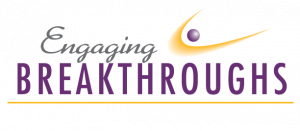How to Have Difficult Conversations Effectively

Let’s talk about how to have difficult conversations. Stop what you’re doing for a moment, and just think about all the relationships that you have. This can include professional relationships such as your colleagues, superiors, direct reports, clients, vendors and competitors. It can also include personal relationships such as family and friends.
Which relationship, if you could improve it, would make the biggest difference in your life experience? Chances are that if you want to make a significant impact on this relationship, you know there’s a difficult conversation that needs to happen. Conventional theory will tell you to have these difficult conversations. They may even provide some advice on what to say during those talks. However, preparing to actually have the conversation requires a special layer of consideration. Here’s how to get clear and have effective difficult conversations.
Identify Your Blind Spots to Difficult Conversations
The barriers to having difficult conversations are rooted in emotional intelligence. If you’re not aware of your feelings, it’s going to be very difficult to direct your actions. Even if you know what to do, if you’re not dealing with what’s inside yourself, you’ll probably avoid it. Perhaps worse, you may have the difficult conversation and it results in a train wreck.
A first step to having a successful difficult conversation is to clearly identify blind spots, which are barriers that are holding you back. We all have parts of ourselves that are not in consciousness. We hide, repress and deny parts of us that protect us from risk and danger, often based on outdated information. While we tend to push these parts away, they continue to drive our decisions. That’s a blind spot! Anything that’s going on in the background and directing your behavior in a way that’s not fully conscious will hold you back from productive difficult conversations.
What is your gut reaction or initial thought knowing that there’s a difficult conversation to be had? What beliefs do you hold about this difficult conversation or about tough conversations in general? What stories do you tell yourself about difficult conversations? The answers to these questions are clues to your blind spots.
We all know that there are thousands, if not hundreds of thousands of programs we can buy to learn how to solve a problem. However, those programs don’t address specific individual needs or blind spots. Our specialty is helping you get clarity on your specific situation. We work one-on-one with people to help them identify and address the blind spots that make them avoid or sabotage difficult conversations. With support, blind spots can be unraveled and turned into powerful energy to fuel moving forward.
Leverage the 4 Channels of Communication
Would you love a model to help guide you to successfully navigate a difficult conversation? At Engaging Breakthroughs, we use a model that employs 4 Channels of Communication to prepare and exchange meaningful, accurate communication. This model can help you to get clear on your intent as well as to deliver your words with accuracy.
The approach:
- Get really clear about the facts. Most of us inadvertently incorporate our judgments into what we describe as facts. When that happens, it makes it difficult to get clear on what you really mean. It may also put the listener on the defensive when you have the conversation. Take time to identify the facts of the situation.
- Get really clear about what you’re feeling. We believe there are 4 core feelings: anger (“I’m not getting what I want.”), joy (.”I’m getting what I want.”), fear (“Something bad will happen.”), and sadness (“I’ve lost something important to me”). The problem is, when people share their feelings they often actually share their judgments in phrases like “I feel like you…” When you use a word that ends in “-ed,” that is probably also a judgment. For example, saying you feel “dismissed” implies someone dismissed you. Saying you feel “betrayed” says that someone betrayed you. We just call these misspeaks, and they often spring from our blind spots. Practice expressing your feelings, paying careful attention to whether you’re actually disclosing an emotion or a judgment.
- Get clear about your judgments/assessments. What conclusions have you drawn about the other person as a result of the facts in combination with your emotions? This is again where emotional intelligence comes in. Your beliefs about what the other person is thinking or doing is likely not accurate. You’re doing what Jung and other psychologists call “projecting.” Get clear about your judgments and assessments of the situation and the other person in order to have a productive difficult conversation.
- Get really clear about what you want. Make sure you define a positive want, not a don’t want. Whatever you focus on will become your destination. Thinking of the negative want will only bring you more of it. Instead, focus on the thing you do want to happen as a result of the difficult conversation.
It’s our experience that learning to apply this model takes guidance and facilitation. When you’re able to successfully apply this model, the result is not only positive changes in relationships, but also an overall increase in emotional intelligence. This model will help you to have a better client-facing experience and more fruitful conversations with team members. It can even improve your personal relationships. Once you’re clear on navigating these 4 channels, you’re much more prepared to have an effective difficult conversation.
Practice Difficult Conversations: A Coaching Offer
Do you have a difficult conversation looming? Through the end of October 2019, we are offering a 1- hour communication coaching session for only $198 (a $398 value). Work one-on-one with a seasoned coach to get clear about your blind spots and practice the 4 channels of communication before you have that important conversation that could change your life. Get more of what you want in life. We’ll show you how!
Click here to book your coaching session now.
 |
Written by Craig Tennant Founder, Engaging Breakthroughs Transformation Architect and Breakthrough Coach At Engaging Breakthroughs, Craig Tennant delivers breakthrough success workshops and online life coaching to increase emotional intelligence. He offers proven leadership development for leaders who seek to build effective teams, break through to success in their careers, and discover life beyond the 9 to 5. |
